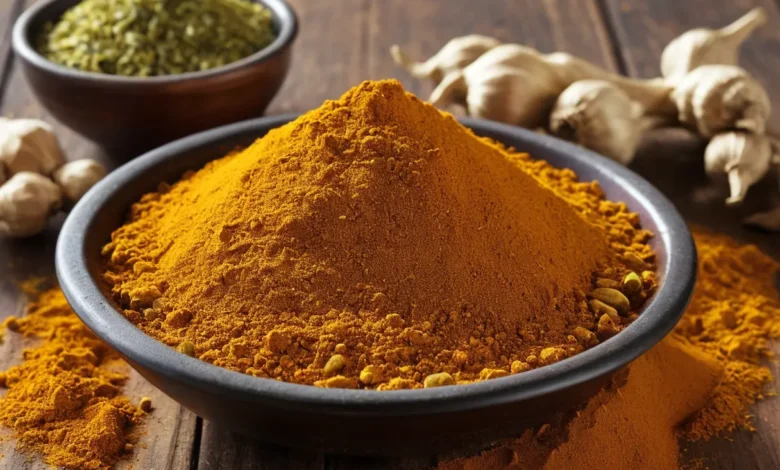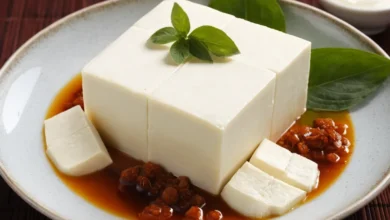The Ultimate Guide to Curry Powder Substitutes: Flavorful Alternatives for Your Dishes

Curry powder is a popular spice blend that adds a vibrant flavor and rich aroma to various dishes, from stews to marinades. However, there may be times when you find yourself out of curry powder or seeking a different flavor profile. Whether you’re looking for an alternative due to dietary restrictions, preferences, or simply a lack of ingredients, this guide will help you explore effective substitutes for curry powder that will keep your dishes delicious and aromatic.
In this blog, we’ll discuss various substitutes for curry powder, how to use them effectively, and tips for achieving the best flavor in your dishes. Let’s dive in and discover how to elevate your cooking with these alternatives!
Common Substitutes for Curry Powder
1. Homemade Curry Powder Blend
One of the easiest ways to replace curry powder is to make your own blend using common spices found in your pantry. Combine the following spices for a quick substitute:
- 1 teaspoon ground cumin
- 1 teaspoon ground coriander
- 1 teaspoon turmeric
- 1/2 teaspoon ground ginger
- 1/2 teaspoon black pepper
- 1/4 teaspoon cayenne pepper or chili powder (adjust for heat)
Mix these spices together and use them in place of curry powder. This blend mimics the flavor profile of traditional curry powder and allows you to adjust the spiciness according to your taste.
2. Garam Masala
Garam masala is another spice blend commonly used in Indian cuisine. It typically contains similar spices to curry powder but is often richer and more aromatic. Use garam masala as a direct substitute in a 1:1 ratio. Keep in mind that garam masala has a distinct flavor, so it may alter the final taste of your dish.
3. Cumin and Coriander
If you have ground cumin and coriander on hand, you can use them as a substitute for curry powder. Combine equal parts of both spices (about 1 teaspoon each) for a simple alternative. This mix will provide a warm, earthy flavor reminiscent of curry powder.
4. Turmeric and Paprika
Turmeric adds a golden color and earthy flavor, while paprika provides sweetness and a mild spice. Mix 1 teaspoon of turmeric with 1 teaspoon of paprika for a flavorful substitute. This blend will not replicate the exact taste of curry powder but will add depth to your dish.
5. Chili Powder
Chili powder is another option, especially if you’re looking to add some heat to your dish. While it won’t replicate the complex flavors of curry powder, it can enhance your meal’s overall spice level. Use chili powder in a 1:1 ratio, but be mindful of its heat level.
6. Cajun or Creole Seasoning
If you’re in a pinch, Cajun or Creole seasoning can serve as a substitute for curry powder. These blends often include paprika, garlic powder, onion powder, and various herbs. Use it in equal amounts as a substitute, keeping in mind that the flavor will differ significantly.
Tips for Using Substitutes Effectively
1. Start with Small Amounts:
When using substitutes, especially spice blends, start with a smaller quantity and taste as you go. This approach ensures you don’t overpower your dish with unfamiliar flavors.
2. Adjust for Heat:
Some substitutes may introduce more heat than curry powder. If using chili powder or cayenne pepper, adjust the quantity based on your heat preference.
3. Consider Dish Type:
The best substitute may vary depending on the type of dish you’re preparing. For instance, garam masala may work better in stews, while a homemade curry blend might be more suitable for marinades or dry rubs.
4. Experiment and Explore:
Don’t hesitate to experiment with different spices and blends. Cooking is about creativity, and finding the right combination can lead to exciting new flavors in your dishes.
Frequently Asked Questions (FAQs)
1. Can I use curry paste instead of curry powder?
Yes, curry paste can be used as a substitute. It has a concentrated flavor, so start with half the amount and adjust to taste.
2. Is there a substitute for curry powder for a gluten-free diet?
Most curry powder substitutes, including homemade blends, are naturally gluten-free. Just be sure to check the labels on any pre-packaged spice blends.
3. Can I use Italian seasoning as a curry powder substitute?
While Italian seasoning won’t replicate the flavor of curry powder, it can provide a herbal note. Use it sparingly and adjust according to your taste.
4. How can I enhance the flavor if I don’t have curry powder?
Consider adding fresh herbs like cilantro or mint, or squeeze in some lemon or lime juice to brighten up the dish.
5. What’s the best way to store homemade curry powder substitutes?
Store any homemade spice blends in an airtight container in a cool, dry place. They can last for several months, but for the best flavor, use them within a few weeks.
Conclusion
Finding a substitute for curry powder doesn’t have to be a challenge. With various flavorful alternatives available, you can continue to create delicious dishes without missing a beat. Whether you choose to make your own blend or explore other spice mixes, these substitutes will keep your meals exciting and full of flavor. So the next time you’re out of curry powder, refer to this guide and keep your culinary creativity flowing!





